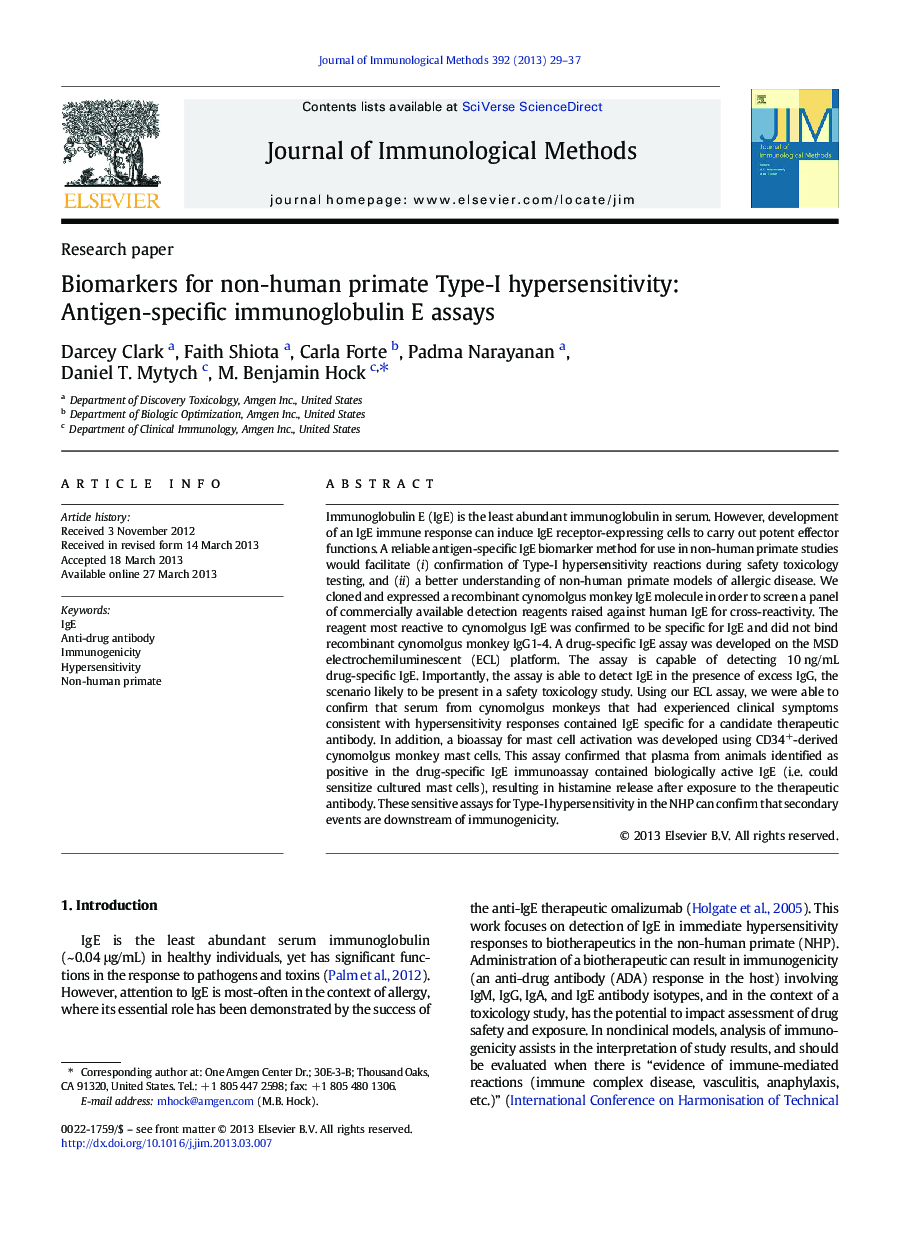| Article ID | Journal | Published Year | Pages | File Type |
|---|---|---|---|---|
| 8418156 | Journal of Immunological Methods | 2013 | 9 Pages |
Abstract
Immunoglobulin E (IgE) is the least abundant immunoglobulin in serum. However, development of an IgE immune response can induce IgE receptor-expressing cells to carry out potent effector functions. A reliable antigen-specific IgE biomarker method for use in non-human primate studies would facilitate (i) confirmation of Type-I hypersensitivity reactions during safety toxicology testing, and (ii) a better understanding of non-human primate models of allergic disease. We cloned and expressed a recombinant cynomolgus monkey IgE molecule in order to screen a panel of commercially available detection reagents raised against human IgE for cross-reactivity. The reagent most reactive to cynomolgus IgE was confirmed to be specific for IgE and did not bind recombinant cynomolgus monkey IgG1-4. A drug-specific IgE assay was developed on the MSD electrochemiluminescent (ECL) platform. The assay is capable of detecting 10Â ng/mL drug-specific IgE. Importantly, the assay is able to detect IgE in the presence of excess IgG, the scenario likely to be present in a safety toxicology study. Using our ECL assay, we were able to confirm that serum from cynomolgus monkeys that had experienced clinical symptoms consistent with hypersensitivity responses contained IgE specific for a candidate therapeutic antibody. In addition, a bioassay for mast cell activation was developed using CD34+-derived cynomolgus monkey mast cells. This assay confirmed that plasma from animals identified as positive in the drug-specific IgE immunoassay contained biologically active IgE (i.e. could sensitize cultured mast cells), resulting in histamine release after exposure to the therapeutic antibody. These sensitive assays for Type-I hypersensitivity in the NHP can confirm that secondary events are downstream of immunogenicity.
Related Topics
Life Sciences
Biochemistry, Genetics and Molecular Biology
Biotechnology
Authors
Darcey Clark, Faith Shiota, Carla Forte, Padma Narayanan, Daniel T. Mytych, M. Benjamin Hock,
